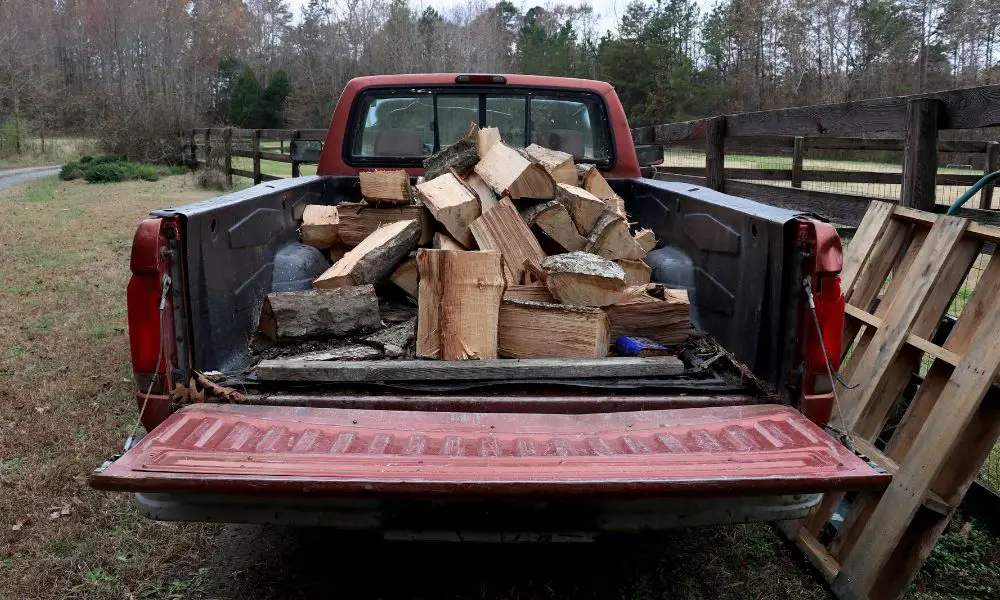We may get commissions for purchases made through links in this post. Thanks for the support! 👍
Overheating is commonly one of the most experienced problems among pickup truck owners. This problem mainly occurs when the truck engine starts to produce more heat than usual increasing the prospect of engine damage. As a result of long-distance travel, pickup trucks are increasingly vulnerable to overheating.
So, what are the common reasons why pickup trucks overheat? Generally speaking, the main culprits come down to a blocked thermostat, a faulty cooling fan, inadequate oil amount, the air in your coolant lines, and more. Of course, there are many other reasons as well.

1. Blocked Thermostat
A thermostat is a component of the engine responsible for regulating engine temperatures to ensure they don’t drop below or surpass the recommended range. When functioning appropriately, the thermostat partially opens and closes to allow maximum coolant flow.
A defective thermostat won’t be able to switch positions between open and closed, meaning it will be stuck in either of the positions. Extreme coolant flow as well as moderately low coolant flow can prompt the engine to overheat and can greatly lessen the engine’s efficiency.
Thermostat problems don’t occur overnight, instead, they take time to develop. However, your pickup truck engine may overheat unexpectedly, and in that case, it would be advisable to get the thermostat replaced at your nearest auto shop.
2. Faulty Cooling Fan
An electric cooling fan is located on the top of your pickup truck radiator. The fan powers up when the truck is motionless but the engine is extremely hot or when the coolant levels are moderately low to properly control temperatures in the engine.
A defective cooling fan won’t turn on, leading to surplus heat production under the hood that could drastically wreck the engine. In addition, a malfunctioning cooling fan will disrupt the functionality of other components, including the thermostat and radiator, which are pivotal to the efficiency of the engine.
Therefore, if your truck’s cooling fan is malfunctioning, have it replaced at your nearest auto shop to avoid pricey damages it can cause to the engine.
3. Inadequate Oil
Oil is responsible for ensuring that everything in your truck is lubricated. There are numerous moving parts and nearly all of them depend on oil’s smooth motion.
Oil insufficiency in your truck will result in interference between parts leading to the generation of excessive heat. Your vehicle’s cooling system is only capable of absorbing a certain amount of heat. This will overwork your cooling system causing the truck to overheat.
4. Air Trapped in Your Lines
Whenever a coolant line is disconnected or replaced, the line ought to be burped to get rid of all the air pockets. These miniature sections of trapped air can downgrade your system’s performance resulting in overheating.
Always monitor your temperature gauge every time you work on your cooling system. If you got rid of lines and your vehicle is still overheating, then there is a possibility of air in the lines.
5. Broken Water Pump
The water pump is responsible for moving coolant through all parts of the engine. It ensures that the coolant is circulated throughout the engine so as to ensure the engine remains cool. With a defective or broken water pump, the coolant will remain stuck in one position. It will heat up and won’t serve its purpose of driving heat away from the engine as it should be the case. Generally speaking, the best way to resolve this issue is by replacing it completely.
6. A Faulty Radiator Cap
Overheating can also stem from a defective radiator cap. The radiator cap features a gasket that locks and maintains the stability of the pressure in the cooling system. If your cap is wrongly positioned or the gasket is faulty, it’s time to get it repaired or replaced.
7. Plugged Up Heater Core
Your truck’s engine is fitted with a heat exchanger. This is a scientific method of dispersing more heat and keeping your engine cool. If the core is fully or partially clogged, it won’t be effective in driving away heat.
8. Coolant Leak
A coolant leak will cause a deficit in the coolant. A minor crack in your line can lead to faster drainage of your reserve.
If you discover a wet spot on the floor immediately after leaving your parking spot, chances are high that it could be coolant. If it’s oil, you will be in serious trouble, hence the need to validate the contents of the coolant.
To address this issue, replace any component that could be spilling coolant in addition to ensuring none of the connections are loose.
9. Towing in hot weather
Anyone who has ever towed a trailer in hot weather knows that it can be a recipe for disaster. The combination of the hot sun and the extra weight of the trailer can quickly overheat a pickup truck, leading to costly repairs. However, some simple steps can be taken to help prevent this from happening.
First, make sure to check the tire pressure on both the truck and the trailer before setting out. Second, keep an eye on the temperature gauge and stop for breaks if the engine starts to get too hot.
Finally, don’t forget to pack plenty of water for both you and your passengers to stay hydrated. By following these simple tips, you can help ensure that your next towing trip is a success.
Frequently Asked Questions
Why would your truck overheat at idle?
If your truck is overheating at idle, there could be a few different reasons. One possibility is that the radiator fan is not working properly. Another possibility is that there is a leak in the coolant system. Finally, the thermostat could be stuck in a closed position, preventing coolant from circulating through the engine. If your truck is overheating, it’s best to take it to a mechanic and have them diagnose the problem. Otherwise, you could end up causing serious damage to your engine.
Can bad injectors cause overheating?
Bad injectors can cause overheating. If the injectors are delivering too much fuel, the engine will run hotter than normal. The extra fuel will create more heat and also cause the engine to run lean, which can lead to pre-ignition and serious engine damage. If you’re noticing that your engine is running hot, it’s worth getting your injectors checked out. Injector problems are often hard to diagnose, so it’s best to take your car to a mechanic who specializes in injector service.
Conclusion
As you can see, there are varied reasons why pickup trucks overheat. If your pickup truck is overheating, it could be due to the discussed above reasons. Therefore, take the necessary measures to keep the engine temperatures under control to avoid any overheating as it can result in engine damage.

![18 Ways You Can Make Your Truck More Modern [Best Truck Accessories]](https://amanandhisgear.com/wp-content/uploads/2021/03/Lightbar.jpg)